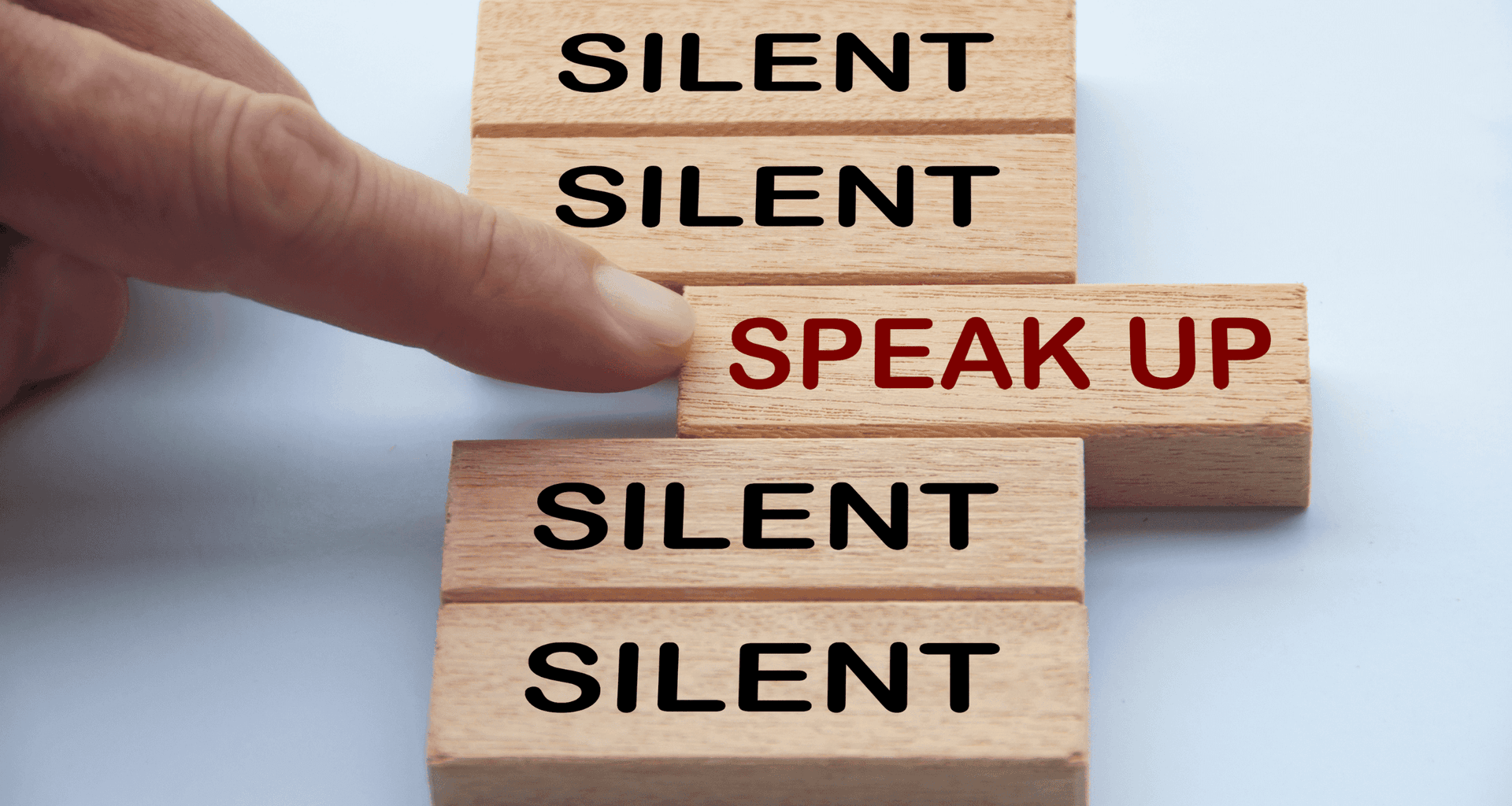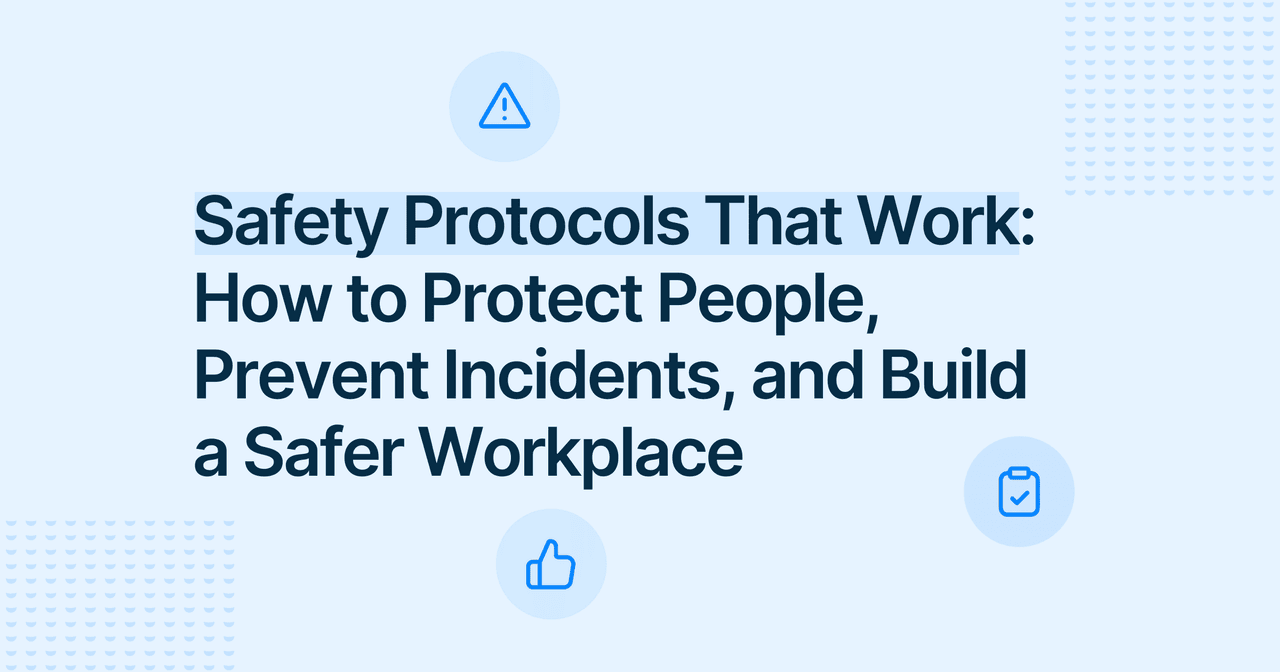



Centralize Reports & Cases
Replace outdated processes with modern, compliant workflows.
Whistleblowing

Yeva Bartkiv
Copywriter
Published
2025-03-10
Reading time
4 min


Table of contents
Subscribe to our newsletter
In today’s dynamic work environment, open communication fosters innovation and creates a positive workplace culture. However, many employees fear speaking up at work due to concerns about job security, backlash, or cultural norms. Why is it so hard to speak up at work? The fear of speaking up at work is deeply rooted in uncertainty - should I speak up at work if something is wrong? Is it safe to speak up at work? Knowing how to speak up at work effectively can empower employees to drive meaningful change.
Through real-world stories, we explore how speaking up has led to major workplace transformations. We also address barriers to speaking up at work and how to speak up for yourself at work with confidence.

In 2016, the financial world was rocked by one of U.S. history's most prominent corporate fraud scandals. A major bank had been creating unauthorized customer accounts to meet aggressive sales targets. John, a whistleblower within the company, initially raised concerns internally, but when decision-makers ignored him, he decided to speak up at work publicly, despite the risks.
His courage led to a $3 billion fine for the company and sparked regulatory reforms across the banking sector. John’s story exemplifies the courage to speak up at work and demonstrates how employees can contribute to corporate accountability.
Creating a speak-up culture is essential for organizations looking to prevent such scandals. By implementing a proactive speak-up policy, companies can ensure employees feel safe speaking up at work without fear of retaliation.

Workplace safety is a significant concern in many industries, especially developing countries. In 2013, the Rana Plaza garment factory in Bangladesh collapsed, killing over 1,100 workers. Several employees had raised concerns about visible cracks in the building, but their viewpoints were dismissed due to a workplace culture that discouraged dissent.
One survivor, Ayesha, later advocated for workers' rights, highlighting the barriers to speaking up at work in environments where job security is fragile. Her activism played a role in international labor reforms, proving that speaking up at work when something is wrong can have a positive impact beyond individual careers.
With today’s technological advancements, platforms like FaceUp allow employees to report unsafe conditions anonymously, promote a speak-up culture, and ensure workers can speak up without jeopardizing their jobs.

In 2012, Maureen Kearney, an Irish trade unionist at French nuclear giant Areva, uncovered a secret deal transferring sensitive nuclear technology to China - threatening French jobs and national security. She sounded the alarm but was silenced by executives and officials.
Soon after, Kearney was brutally attacked in her home, her initials carved into her body. Shockingly, instead of being protected, she was accused of fabricating the attack and charged with making false statements. Her reputation was destroyed, and she faced years of legal battles.
Ultimately acquitted, Kearney’s ordeal exposed the dangers whistleblowers face and sparked national debate on workplace safety and whistleblower protections. Though no direct reforms followed, her story remains a powerful warning on the risks of speaking up and the urgent need for corporate accountability.
Each case demonstrates that speaking up can lead to significant change, but how can employees do it safely? Here’s how to be effective when speaking up at work:
Organizations must also foster a speak-up culture where employees feel protected. Implementing a proactive speak-up policy ensures concerns are addressed constructively rather than ignored or punished.
The courage to speak up at work has changed laws, improved industries, and reshaped work environments. However, ensuring psychological safety for employees is crucial in making open communication a standard practice.
Organizations should promote a speak-up culture to support employees in voicing concerns without fear. Modern whistleblowing platforms like FaceUp provide employees with a secure, anonymous way to report misconduct, making workplaces more transparent and accountable.
If you truly care about creating a safe, transparent environment where every voice is heard, it’s time to take action. FaceUp provides a secure, anonymous reporting system that empowers employees, students, or team members to speak up without fear. The right tools don’t just encourage openness - they build trust, prevent issues, and create a culture where people feel valued and protected.
Don’t wait for problems to surface - be proactive. Book a demo with FaceUp today and take the first step toward a safer, stronger organization.




Replace outdated processes with modern, compliant workflows.
Keep Reading

Alaa El-Shaarawi2026-02-108 min
Legal & Compliance

Alaa El-Shaarawi2026-02-098 min
Workplace Environment

Marie Roland2026-02-033 min
Workplace Environment

Alaa El-Shaarawi2026-02-029 min
Workplace Environment